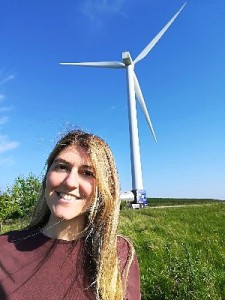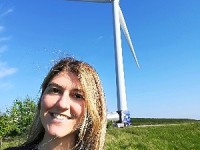During the PhD period short term research stays, secondments, in another university/research institution rather than the employing organization can be very useful, academically, personally and for networking.
What are the advantages of the secondment?
The secondment experience has a positive impact on the overall development of cross-cultural sensitivity, adaptability and flexibility, being a perfect opportunity to enhance the communication skills when dealing with a new set of working environment, languages and cultures. Moreover, as the world becomes more and more international, having international experience is becoming increasingly valued by employers and looks impressive in the CV. In fact, the unique skill-set gained by collaborating with different researchers opens up new job opportunities and helps to stand out in the competitive job market.
Besides the innovative research topics pursued by the INCITE PhD fellows, the international experience abroad is one of the pillars of the INCITE project. Specifically, all the ESRs have the opportunity of being hosted by worldwide leading research institutions and companies with the aim of:
- Improving the knowledge on technical fields related to the doctoral research topics.
- Meeting new people from other cultures and backgrounds.
- Traveling and exploring beautiful cities and countries.

The secondment: a personal experience
As one of the fourteen PhD students, I would like to share my personal feelings and experiences about the research stages that I carried out at the Technical University of Delft (TUD) in the Netherlands and at the National Renewable Energy Laboratory (NREL) in Boulder – CO.
Working in a different country comes with some changes of lifestyle and working conditions. I needed to adapt myself quickly at different working time, advisors, colleagues, cultures, language and weather conditions - despite I moved from Barcelona to colder countries, I ended up by appreciating also the worst rainy and snow days.
 As home to one of the most prestigious universities in Europe, Delft is a student-friendly city; melting-pot of different cultures. At TUD I spent 5 months, since the beginning I have been included in a great research team where I found number of international PhD students open to any type of collaboration and discussions. Specifically, I had the opportunity to learn a lot on the field of control theory and wind energy applications by Professor Bart De Schutter and Professor Jan-Willem Van Wingerden, two of the leading professors in control systems at the Delft Center for Systems and Control. They have focused on skill-based training, and have urged me to learn by following my ideas, making mistakes, asking questions and collaborating with the other researchers in their groups. In order to keep being updated about my research stay they followed me with weekly meetings, even though their busy schedule. Thanks to this constant support, I acquired knowledge and skills for qualitative research, which ended up with novel and interesting control strategies for optimizing wind energy generation. Nevertheless, since my employing institution is a research center (Catalonia Institute for Energy Research-IREC), working some months in a university environment has been a new experience. Almost every day it was possible to attend interesting presentations and workshops given by the professors at TUD or other visiting researchers along with the PhD defenses in different fields of industrial engineering. Moreover, in order to stimulate the social interactions with coworkers the DCSC department organized many social events that I really enjoyed and helped me to show also the funnier part of me. During the secondment at TUD, I have entertained solid friendship and fruitful scientific dialogue, starting points to develop durable professional network.
As home to one of the most prestigious universities in Europe, Delft is a student-friendly city; melting-pot of different cultures. At TUD I spent 5 months, since the beginning I have been included in a great research team where I found number of international PhD students open to any type of collaboration and discussions. Specifically, I had the opportunity to learn a lot on the field of control theory and wind energy applications by Professor Bart De Schutter and Professor Jan-Willem Van Wingerden, two of the leading professors in control systems at the Delft Center for Systems and Control. They have focused on skill-based training, and have urged me to learn by following my ideas, making mistakes, asking questions and collaborating with the other researchers in their groups. In order to keep being updated about my research stay they followed me with weekly meetings, even though their busy schedule. Thanks to this constant support, I acquired knowledge and skills for qualitative research, which ended up with novel and interesting control strategies for optimizing wind energy generation. Nevertheless, since my employing institution is a research center (Catalonia Institute for Energy Research-IREC), working some months in a university environment has been a new experience. Almost every day it was possible to attend interesting presentations and workshops given by the professors at TUD or other visiting researchers along with the PhD defenses in different fields of industrial engineering. Moreover, in order to stimulate the social interactions with coworkers the DCSC department organized many social events that I really enjoyed and helped me to show also the funnier part of me. During the secondment at TUD, I have entertained solid friendship and fruitful scientific dialogue, starting points to develop durable professional network.
 The second experience abroad was at NREL-National Wind Technology Center, pioneering research center for designing, researching, and validating advanced wind power plant control systems. Working in a place where wind energy is investigated under different aspects has given me the possibility to have a full understanding of the major issues and challenges regarding wind turbine and wind farm technologies. Specifically, I have worked with the Transmission and Grid Integration group, focused on wind energy impacts on transmission and interconnection issues. Since the beginning, I have experienced the differences between the European and American working and life styles. Number of training courses in the rules of conduct and safety were necessary to work at NREL. Moreover, I had the impression that the working hours are stricter and people, in general, work more than European average. However, I have never felt under pressure and I have been surrounded by nice and very helpful people. In Boulder, maybe for its proximity to the mountains, there is a strong sustainable and eco-friendly culture; so it has made me extremely more respectful of nature. During my stay at NREL I had an amazing time, I will remember this secondment experience, the great working relationships along with the wonderful people met.
The second experience abroad was at NREL-National Wind Technology Center, pioneering research center for designing, researching, and validating advanced wind power plant control systems. Working in a place where wind energy is investigated under different aspects has given me the possibility to have a full understanding of the major issues and challenges regarding wind turbine and wind farm technologies. Specifically, I have worked with the Transmission and Grid Integration group, focused on wind energy impacts on transmission and interconnection issues. Since the beginning, I have experienced the differences between the European and American working and life styles. Number of training courses in the rules of conduct and safety were necessary to work at NREL. Moreover, I had the impression that the working hours are stricter and people, in general, work more than European average. However, I have never felt under pressure and I have been surrounded by nice and very helpful people. In Boulder, maybe for its proximity to the mountains, there is a strong sustainable and eco-friendly culture; so it has made me extremely more respectful of nature. During my stay at NREL I had an amazing time, I will remember this secondment experience, the great working relationships along with the wonderful people met.
 Why should you carry out the secondment?
Why should you carry out the secondment?
Because no matter how happy you are in your current working place, being out of your comfort zone is always a positive experience. Lastly, since the time will pass much faster than you could realize, you must carefully plan your activities to enjoy the secondment to the fullest.

